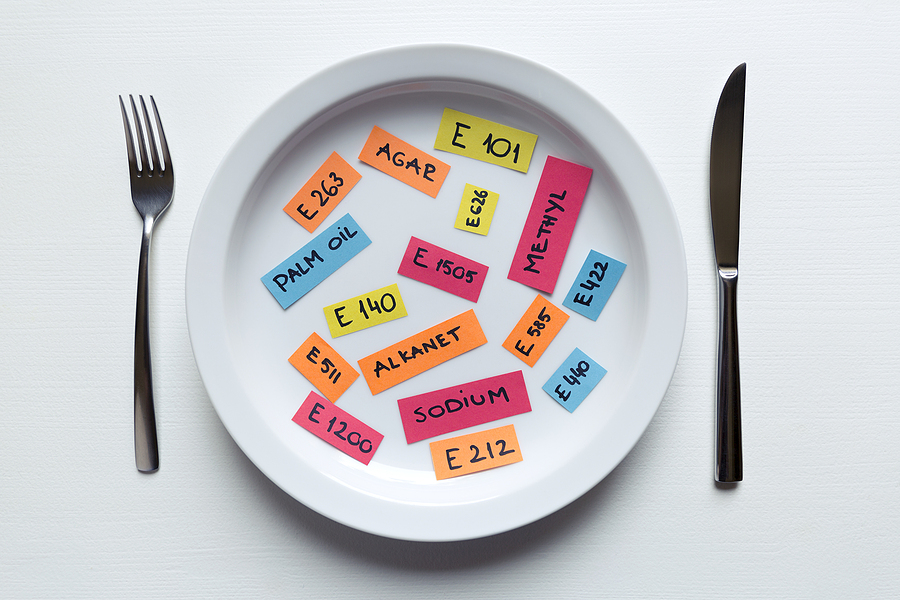What is ultra processed food really doing to your mental health?
Ultra-processed foods (UPFs) and the negative impact they can have on our health has been a big topic lately.
Now, a new study has linked consuming higher amounts of UPFs – typically things like ready-meals, sugary cereals and fizzy drinks – with poorer mental health.
The research, published in The BMJ, suggested consuming higher amounts of this type of food – which is usually high in fat, sugar, salt and chemical colourings, sweeteners and preservatives – was associated with a higher risk of anxiety and depression.
Academics in Australia analysed 14 review articles over the last three years which associated UPFs with poor health outcomes, involving data from 9.9 million people.
Among the findings, there was “convincing evidence” higher UPF intake was associated with a 48-53% greater chance of developing anxiety, and “highly suggestive” evidence of a 22% greater risk of developing depression.

So, how exactly does junk food affect your mental health? Health experts share everything you need to know…
Why do we like ultra-processed and junk food?
“These ultra-processed foods are void of nutritional value, but full of instant satisfaction,” says Dr Ishani Rao, NHS GP and doctor at Plant-Based Health Professionals UK.
“These foods do often trigger an immediate hit of dopamine, but this has the consequence of increasing future cravings and stimulating addiction.”
However, the sense of satisfaction might be short-lived. Rao says people might experience a ‘crash’ after a junk food meal – a neurochemical process similar to a ‘come-down’.

“Studies have shown that this can cause irritability, brain fog and fatigue, and can trigger inflammatory pathways that affect the brain, as well as triggering physical conditions,” she explains. “These foods often fill us up quickly, so it can be easy to ignore the fact that we do need to eat fruit and vegetables and healthy carbohydrates, too.”
Children’s mental health concerns
According to Dr Amelia Lake, professor of public health nutrition at Teesside University, a recent study found a wide range of risks related to children consuming energy drinks, especially when it comes to their mental health.
“Drinking energy drinks is linked to an increased risk of anxiety, stress, depression, suicidal thoughts, and psychological distress among children. Its consumption also showed an increased risk of poor academic performance, sleep problems, and unhealthy dietary habits,” says Lake. “Energy drinks are marketed to children and young people as a way to improve energy and performance, but our findings suggested they are doing more harm than good.”
Guts are the ‘second brain’
Rao says the relationship between the gut and the brain is “absolutely fascinating” – and researchers are increasingly discovering more about the role our diets play.
“We have all heard the terms ‘gut instinct’, ‘go with your gut’ and ‘food for thought’, so it’s no wonder that the digestive system has been described as our second brain,” says Rao. “One theory, as well as the dysregulation of neurotransmitters and increase in inflammation, is that there is a direct link between the vagus nerve and our brains.
“The vagus nerve is the nerve responsible for regulating the parasympathetic nervous system, known as the ‘rest and digest’ system. This pathway chills us out and relaxes us – the opposite of the sympathetic nervous system, which is known as the ‘fight or flight’ system.
“This direct link between the vagus nerve and the brain is really exciting and we should not ignore the benefits of feeding our gut healthy, colourful, nutritionally complete foods to improve our mental health,” she adds.
“It is also worth noting that around 80% of our serotonin, one of the key ‘feel-good’ mediators in regulating our mental health, is produced in the gut. Look for healthy food that gives you long-term energy, makes you feel light and calm, and does not exacerbate any physical or mental symptoms.”
The gut microbiome also plays a part
Rao adds: “The gut microbiome is also a key player here. This is made up of trillions of microbes that are active in the gut, helping to digest food and strengthen your immune system. We know that having a wide diversity of microbes in the gut can improve our overall physical and mental health. Those who eat a varied diet, consisting of many fruits, vegetables, whole grains and spices, have a more diverse gut microbiome.
“On the converse, highly processed foods can be harmful to the good microbes, and lead to inflammation of the gut. Therefore, consuming these in moderation is really important to protect the health of your digestive system.”
The shame factor
Experts often say balance is key when it comes to a healthy diet – and the occasional treat is nothing to worry about. But for some people, junk food may also be linked with binge eating.
“Binge eating brings with it feelings of shame, lack of control, and subsequent mental health problems in response to changes in your body,” says Dr Catherine Carney, psychiatrist and addiction expert at Delamere.
“More often than not, this action is done in secrecy, which is burdensome and likely results in additional feelings of stress and anxiety. In some cases, binge eating can lead to self-medicating to mask feelings of sadness and, eventually, substance addiction.”
Missing out on the good stuff

Eating a diet predominantly consisting of ultra-processed food may also increase your risk of becoming deficient in essential nutrients, such as iron, calcium, magnesium, selenium, B12 and zinc.
“Low levels of these can cause neurological deficits, and may even mimic symptoms of mental health issues such as burnout or depression,” says Rao. “We also know unhealthy diets can increase the risk of physical conditions, such as high blood pressure, high cholesterol, obesity, inflammatory conditions such as joint issues, and more.
“People who suffer from chronic physical health conditions suffer from double the rates of mental health issues compared to the general population. So, not only is there a direct link between poor quality food and your mood, but there is also an indirect link as a consequence of poor physical health, which can cause mental health issues.”
The Press Association
Latest posts by The Press Association (see all)
- The Princess of Wales pays tribute to the late Queen in burgundy ensemble for Qatar state visit - December 3, 2024
- Give your garden wildlife some home-made Christmas treats - December 2, 2024
- What is surgery prehabilitation and why is it important? As Joe Wicks launches get ‘fit for surgery’ videos for elderly - November 30, 2024
- How to manage your arthritis in the cold weather - November 30, 2024
- How to help a child through grief - November 28, 2024





















